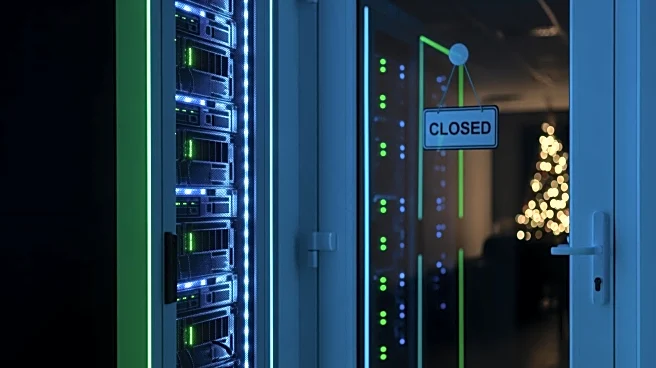Rapid Read • 8 min read
President Trump has announced the acquisition of a 10% stake in Intel, marking a significant move by the U.S. government into the computer chip business. This decision is part of a broader strategy to protect industries deemed vital to national security. The acquisition was facilitated by converting unpaid construction grants from the 2023 Chips Act into Intel stock. This move has generated criticism from conservatives who view it as a departure from traditional American capitalism, with concerns about potential market inefficiencies and corruption. The administration's actions echo past government interventions during the 2009 financial crisis, where partial ownership was acquired in companies like General Motors and Citigroup.
AD
The acquisition of Intel shares by the U.S. government represents a shift towards state-managed capitalism, raising concerns among conservatives about the potential for increased government control over private sector decision-making. This move could set a precedent for future government interventions in other industries, potentially leading to a U.S. sovereign wealth fund. The decision has sparked debate over the balance between national security and free market principles, with implications for the semiconductor industry and broader economic policy. Critics argue that such government involvement could lead to inefficiencies and hinder the performance of free market capitalism.
The acquisition may lead to further government investments in key industries, with Commerce Secretary Howard Lutnick suggesting similar strategies for defense contractors. The administration's actions could pave the way for a U.S. sovereign wealth fund, potentially expanding government influence in the private sector. The move has prompted discussions among lawmakers and industry experts about the long-term implications for U.S. economic policy and national security. Future transactions in other industries may follow, as the administration explores ways to leverage government investments for strategic advantage.
The government's stake in Intel raises ethical and legal questions about the extent of government involvement in private enterprise. The move challenges traditional conservative views on capitalism and could lead to a reevaluation of economic policies. The potential for increased government control over corporate policies, such as green technology and diversity, is a concern for some stakeholders. The acquisition also highlights the geopolitical dimensions of economic policy, as the U.S. seeks to strengthen its position in critical industries amid global competition.
AD
More Stories You Might Enjoy













